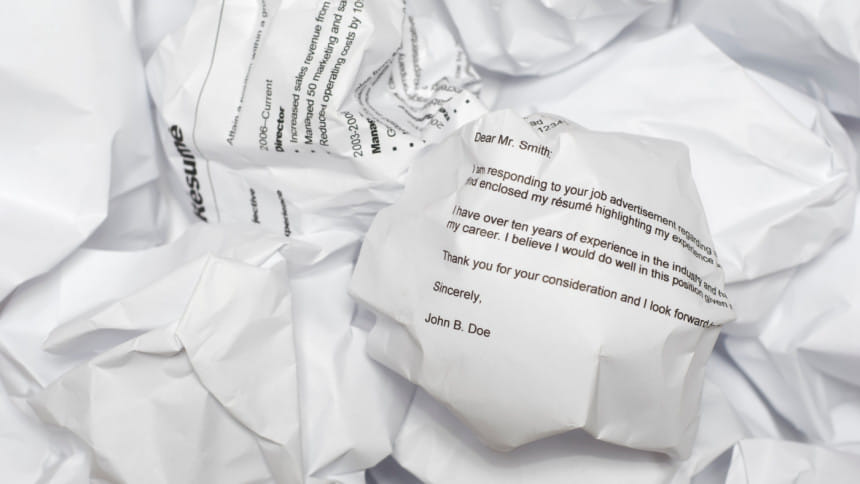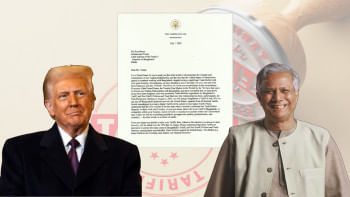Cover letters: are they relevant anymore?

"To apply for this position, please submit your CV along with a cover letter to…" If you are a modern-day job hunter, this particular sentence might stick out like a sore thumb to you. Cover letters, meant as a medium for applicants to convey their motivations, qualifications, and a glimpse of their personality to prospective employers, are often asked by many modern workplaces as a requirement alongside mandatory documents such as resumes, educational certificates, and work experience letters.
However, with the advent of online job applications and automated applicant tracking systems, many argue that the traditional cover letter has become obsolete. The efficiency of parsing through standardised resumes and extracting relevant information has led many employers to prioritise resumes and online application forms over cover letters. Thus, brings the obvious question: are cover letters even relevant anymore?
Standing out among the crowd
One primary argument in favour of cover letters is their ability to provide a personalised insight into the candidate's motivations, career goals, and unique qualifications. In a sea of standardised resumes, a well-crafted cover letter allows applicants to showcase their personality, express enthusiasm for the position, and articulate how their skills align with the company's values and goals.
"In our company, we don't look at cover letters that seriously. However, since most candidates don't send cover letters anymore, when the few that do, we check their letters knowing that they added in the extra effort," says Susmita Shahreen Newaz, Senior HR Generalist at SELISE Digital Platforms. "This is, of course, a good thing, especially if you are shortlisted into a competitive pool and need a comparative advantage over the other candidates."
In today's competitive job market, standing out is crucial. A compelling cover letter can tell a story that goes beyond the chronological listing of experiences found in a resume, allowing candidates to present themselves as more than just a set of skills and qualifications. However, even the most brilliantly crafted cover letter will not be able to paint a complete picture of an applicant's personality and whether they would be a good fit for the job.
The dying relevance
Even with all the arguments that can be made against the apparent ineffectiveness of cover letters, no applicant in their right mind would opt to not send a cover letter if a job application specifically requests it. As such, it is impossible to claim outright that one would not need a cover letter - as there are still workplaces, both local and abroad, that ask for cover letters in job postings.
Nonetheless, it cannot be denied that the relevance of cover letters has fallen in the past few years. "Since recruiters need to screen multiple resumes within given deadlines, cover letters do not have much significance," says a manager at a local logistics company. "Instead of a cover letter, a well-crafted resume, especially one that precisely states a candidate's experience, is much more applicable to modern job applications."
According to the experienced manager, there are also AI-powered tools such as C-Factor from The Talent Games which can help employers with pre-screening employment tests and assess a candidate's job and role fit. Such methods have contributed towards making cover letters even more obsolete for many modern employers.
A similar case about the dying relevance of cover letters can be heard from local job applicants as well. "For my recent job search, I applied mostly through LinkedIn, for positions that didn't require cover letters," shares an intern at Starcom, a local digital marketing and advertising agency. "Even though I did not attach cover letters with my resume for my recent applications, I still got selected for interviews."
This tells a tale echoed by many recruiters and applicants not just in Bangladesh, but around the world as well - cover letters aren't that needed anymore. So, why do employers still ask for them?
Are they a worthwhile investment?
At the end of the day, a traditional CV or resume doesn't tell much about a person other than their educational and professional qualifications. Of course, not much other than these details might be required by an employer, but a personalised cover letter can still, at the very least, potentially leave a favourable first impression.
"I would say cover letters still hold a vital role nowadays. Using it, an employer can have a basic idea about the applicant and why he or she would be a good fit for the position," says Jawad Anis Swanon, an Operations Engineer at Banglalink Digital under a third-party contract. However, when asked how frequently he has been required to submit cover letters alongside resumes for a new job application, the recent job applicant answered, "If I have to assign a percentage, 30 to 40% at most."
Many applicants also believe that when it comes to applying to multiple jobs at once, investing your time in building a solid resume is much more worthwhile than preparing a cover letter. "We are living in the tech era where we can collect data easily. So, a cover letter alone is not enough to judge a person's quality and worthiness for a potential job," adds the Starcom intern.
However, if it's a position that says a cover letter is 'optional', you should consider it safe to attach a cover letter anyway. According to an article by the international job search platform Indeed, the inclusion of a cover letter goes a long way in showing the employer that you take the job opportunity seriously - a big first step towards that positive first impression you surely want to make.
While the debate over the modern relevance of cover letters continues, the persistence of their request by many companies suggests that they still hold value in the hiring process. However, as can be seen from recruiters and applicants alike, cover letters have certainly faded in modern relevance, and perhaps will continue to do so in the upcoming years.

 For all latest news, follow The Daily Star's Google News channel.
For all latest news, follow The Daily Star's Google News channel. 



Comments